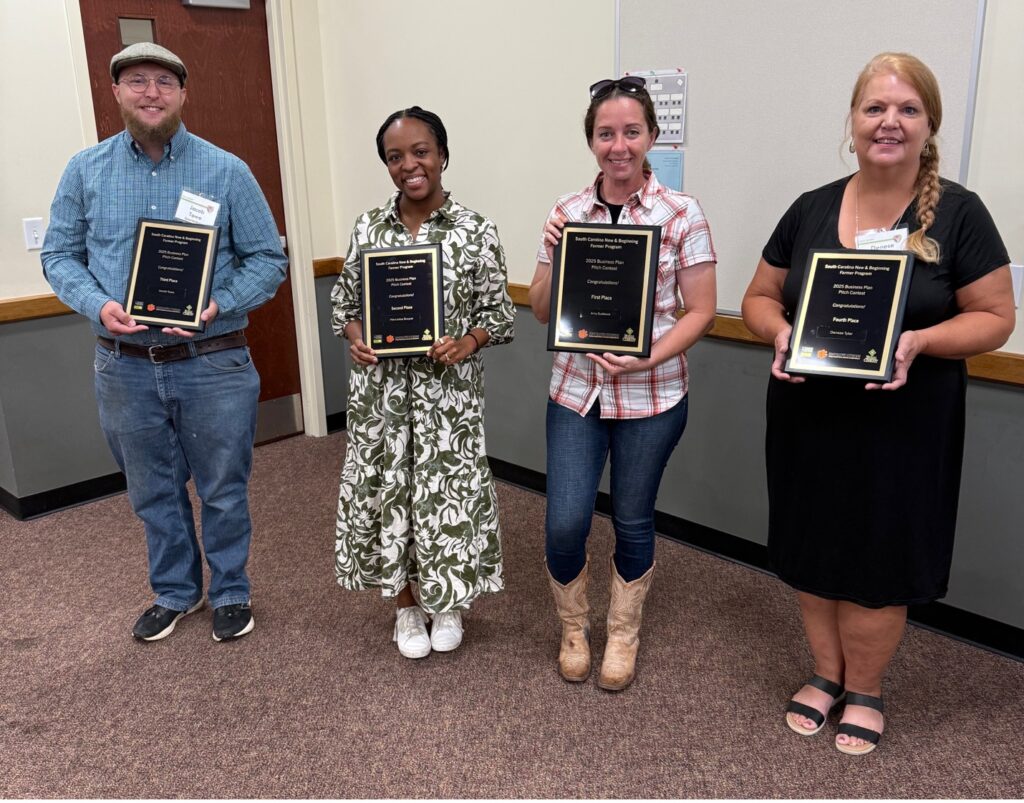The Clemson Extension South Carolina New and Beginning Farmer Program (SCNBFP) proudly celebrated the graduation of its Class of 2025, marking a milestone in the program’s 15-year history of empowering the next generation of South Carolina producers. This year’s cohort included 50 graduates who successfully completed the Certificate program and an additional 13 participants enrolled in the Audit track. Together, they represented a diverse cross section of South Carolina agriculture—from aspiring farmers launching their first enterprises to those expanding existing operations across a wide range of commodities and regions.
Throughout the five-month program, participants engaged in ten full-day workshops focused on essential agribusiness management and production topics. Sessions covered business planning, financial and risk management, marketing, legal and regulatory considerations, soil health, and integrated pest management. Participants also connected with Clemson Extension Agribusiness professionals, industry partners, and fellow farmers, gaining access to valuable resources and building relationships that will continue to support their success long after graduation.
A highlight of this year’s program was the introduction of a Business Plan Pitch Contest, sponsored by SC Farm Credit, which provided cash prizes to support the growth and development of participants’ farm operations. The competition showcased the entrepreneurial spirit and innovation of South Carolina’s beginning farmers. Congratulations to this year’s winners: 1st Place – Amy Sudbeck; 2nd Place – Mercedes Bouyer; 3rd Place – Jacob Towe; and 4th Place – Denese Tyler.

With more than 650 program alumni to date, the SCNBFP continues to serve as a vital resource for new and beginning farmers across the state. By providing the tools, knowledge, and confidence needed to build viable, sustainable farm businesses, the program is strengthening rural communities, expanding access to locally produced food, and ensuring that agriculture remains a cornerstone of South Carolina’s economy for generations to come.








